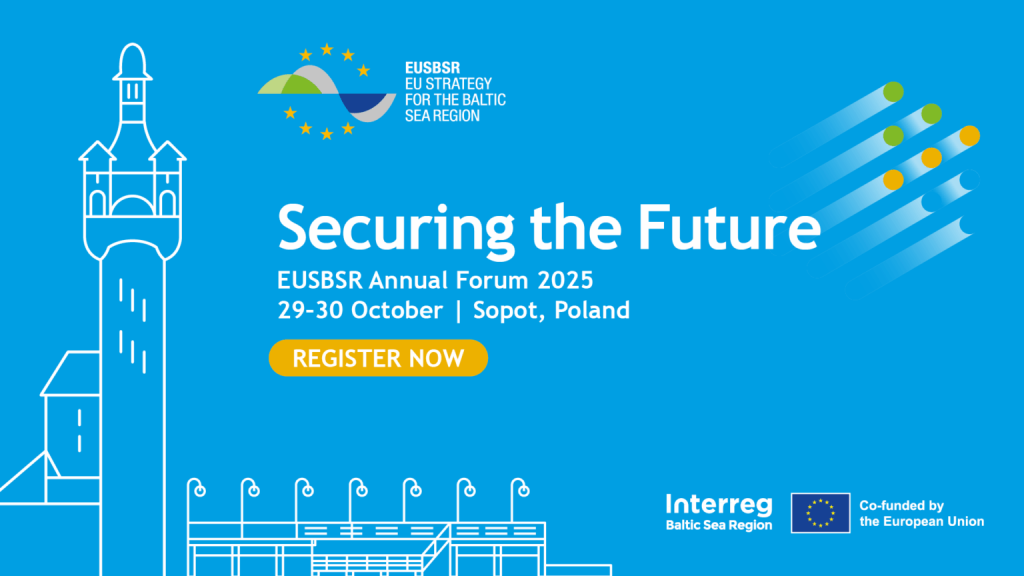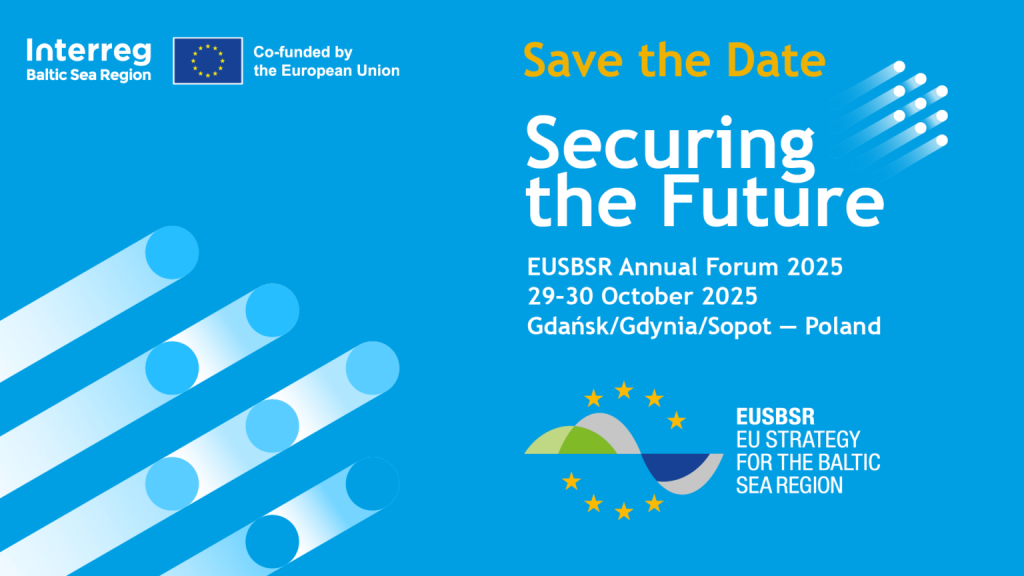
We are pleased to announce that the EUSBSR Annual Forum 2025 will take place in Pomorskie Region (Gdańsk/Gdynia/Sopot) in Poland, in October 2025. Registration will open soon, and we encourage you to save the date:
• Date: 29-30 October 2025
• Venue: Gdańsk/Gdynia/Sopot, (final venue to be confirmed in due time)
• Registration: Opens in June 2025
• Theme: “Securing the Future: Stronger Together – Building Stability in Times of Uncertainty”
• Back-to-back event – BSSSC Day of Cities and Regions: 28 October 2025, at the same venue as the Annual Forum
The EUSBSR Annual Forum is one of the largest pan-Baltic cooperation events in the Baltic Sea Region. It brings together stakeholders from across the region to collaborate on addressing common challenges and supporting the implementation of the objectives of the EU Strategy for the Baltic Sea Region (EUSBSR).
We look forward to your participation and contributions to the EUSBSR Annual Forum 2025, which is taking place during a period of significant change in the Baltic Sea Region, its vicinity and beyond. The forum will address the crucial question:
What actions are needed to build stability and a prosperous future for us all and the generations to come, across geopolitical, economic, social and environmental dimensions?
Viewed through the lens of the “Securing the Future”, the forum will address the EUSBSR’s three main objectives: “Save the Sea, Connect the Region and Increase Prosperity”:
Enhancing resilience to adversity and unpredictability, particularly focusing on energy security and critical infrastructure.
Ensuring economic and social resilience by emphasasing workforce development, education and green innovation. Ensuring the integration of culture and tourism to strengthen regional ties and the Baltic identity.
Protecting the environment and natural resources and promoting circular economy. The Baltic Sea in good environmental health can support diverse activities.
Policy makers, experts, and practitioners from ministries, agencies, local governments, academia, NGOs, and the EU will gather in the Pomorskie Region, Poland, for the Annual Forum. With a dynamic programme of high-level plenaries, panel discussions, workshops, and networking opportunities, the forum will encourage collaboration on strategies in the Baltic Sea Region to tackle the challenges of stability and sustainability in changing times.
Ahead of the EUSBSR Annual Forum and organised by BSSSC and partners, the Day of Cities and Regions will take place in Pomorskie on 28 October 2025. The event will bring together regional and local stakeholders, including authorities, civil society and youth organisations, to engage with EUSBSR Policy Areas. The day will conclude with an evening programme by the BSR Cultural Pearls project.
Additional information about the EUSBSR Annual Forum 2025 can be found here.
The host for the Annual Forum 2025 is the Pomorskie Voivodeship and the Forum is organised together with the Council of the Baltic Sea States Secretariat (CBSS), supported by the Ministry of Foreign Affairs of Republic of Poland, and in close collaboration with the Baltic Sea Strategy Point. The event is funded by the Interreg Baltic Sea Region Programme, the Pomorskie Voivodeship and the Council of the Baltic Sea States Secretariat.

